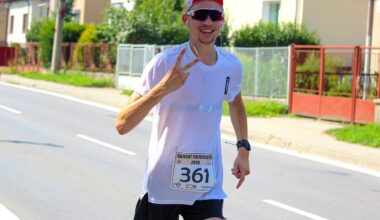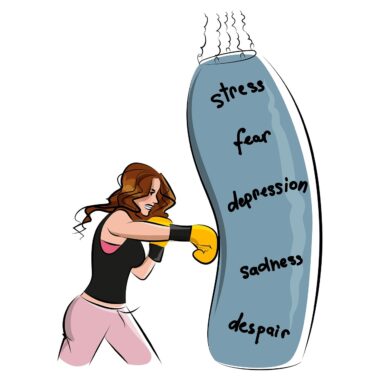Mind and Movement: How Adaptive Fitness Promotes Psychological Well-being
Engaging in adaptive fitness can significantly enhance mental health for individuals with disabilities. By promoting physical activity tailored to personal abilities, adaptive fitness aids in reducing anxiety and depression levels. This approach nurtures a sense of achievement, vital for improved psychological well-being. Participants often report feeling more empowered as they break through physical and social barriers through adaptive physical activities. Facilitation by trained instructors increases confidence and encourages social interaction. Social connections foster a supportive community among individuals with similar challenges. This network plays a crucial role in emotional support. Numerous studies indicate that regular physical activity can influence overall mood positively. Endorphins released during exercise contribute to this uplift in spirits. Additionally, adaptive fitness programs often incorporate mindfulness practices, further supporting mental resilience. This holistic approach addresses both physical and mental health concerns. Those engaged in adaptive fitness often experience increased emotional regulation, contributing to a healthier mindset. Establishing a routine within these programs encourages commitment and routine, leading to lasting changes. Overall, adaptive fitness serves as a critical component in fostering psychological well-being alongside physical health, bridging the gap between mind and movement.
The Benefits of Adaptive Fitness
Adaptive fitness presents numerous benefits for psychological health. Firstly, it improves self-esteem and self-efficacy among participants. Active engagement in fitness routines provides individuals with challenges that develop competence and mastery over their bodies. This newfound confidence extends into daily life experiences, enhancing overall quality of life. Moreover, adaptive fitness promotes a sense of belonging. Individuals who may feel isolated due to their disabilities find companionship in group sessions. This social interaction is crucial for emotional health, alleviating feelings of loneliness. Additionally, regular participation leads to better coping strategies for daily stressors. Individuals equipped with these strategies manage life’s challenges more effectively. Fitness activities provide an outlet for pent-up emotions, reducing stress levels considerably. Another essential benefit is the improvement of cognitive function through physical exercise. Improved blood circulation and neurological benefits heighten awareness and focus, significantly enhancing mental clarity. The physical components of adaptive fitness programs often include activities that require coordination and concentration, reinforcing cognitive skills. Ultimately, adaptive fitness not only addresses physical limitations but also cultivates psychological resilience, essential for navigating life’s complexities. When physical health improves, mental well-being follows suit as part of a holistic lifestyle approach to personal health.
In addition to improved self-esteem, adaptive fitness fosters greater emotional expression. Activities such as dance, yoga, or martial arts incorporate movement and creativity, allowing participants to express their feelings effectively. This form of expression is vital for both psychological growth and healing, enabling individuals to articulate their experiences through physical motion. Moreover, the therapeutic benefits of nature-based programs in adaptive fitness contribute significantly to emotional well-being. Connecting with nature through outdoor activities creates a sense of calm and improves mood. This natural setting allows for introspection and facilitates mindfulness, enhancing the adaptive fitness experience. Furthermore, adaptive fitness programs often address specific psychological needs related to disabilities. Tailored exercises can target areas of concern, promoting both physical strength and mental fortitude. Acceptance and Commitment Therapy (ACT) elements in fitness programs assist individuals in aligning actions with their values. This approach helps participants to build a resilient mindset while overcoming mental hurdles. Over time, the cumulative experience of adaptive fitness enables individuals to embrace their identities positively. Ultimately, these aspects create a synergistic effect, promoting overall well-being by harmonizing body and mind, thus fostering a fulfilling life.
Building Community through Adaptive Fitness
Creating a supportive community is paramount in enhancing the benefits of adaptive fitness programs. Many participants find strength in numbers as they share common experiences and challenges. This shared journey fosters unique bonds, transforming individual struggles into collective triumphs. Group settings encourage participants to motivate one another, amplifying commitment to personal and fitness goals. Peer encouragement is often a significant factor in retaining engagement with fitness regimes. Knowing that others face similar challenges can significantly reduce the stigma often associated with disabilities. By building camaraderie, adaptive fitness programs offer a safe space for participants to express vulnerabilities. Exercises designed to include team-building activities cultivate teamwork and trust among members. In many cases, friendships formed in these settings extend beyond the program, creating lasting connections. The celebration of achievements—big or small—strengthens social ties, reinforcing positive mental health outcomes. Furthermore, group participation increases accountability, encouraging individuals to remain consistent in their fitness efforts. Ultimately, community building within adaptive fitness underscores its importance in fostering a supportive environment that contributes positively to overall mental well-being. This network of support enhances the adaptive fitness experience, creating connections that enrich participants’ lives.
Adaptive fitness programs also emphasize the role of skilled instructors in participant success. Well-trained instructors possess the knowledge and empathy needed to create effective and inclusive environments. Their expertise allows them to adapt exercises to fit each participant’s needs. This level of professional guidance is crucial for fostering both physical and mental growth in individuals. The personal connection between instructor and participant can significantly impact motivation levels. When instructors demonstrate understanding and encouragement, individuals feel valued and supported. Additionally, they act as role models, inspiring participants to push their limits. Furthermore, incorporating regular feedback helps participants track progress, reinforcing a sense of achievement. Instructors who celebrate small victories instill a positive mindset, encouraging continued effort. Moreover, many adaptive fitness programs integrate technology, such as apps, to enhance engagement. These digital tools promote further interaction and support outside training sessions. Virtual communities created through these platforms help sustain motivation, ensuring participants remain connected. Ultimately, the combination of skilled instructors and supportive tools creates an ideal environment for personal growth through adaptive fitness. This blend encourages consistent practice, fostering improvement in both physical capabilities and mental health.
Promising Future of Adaptive Fitness
The future of adaptive fitness is promising, with advances in technology and inclusiveness reshaping the landscape. Innovations such as wearable fitness trackers and virtual reality programs create tailored opportunities for individuals with disabilities. These cutting-edge tools significantly enhance participation, showing that adaptive fitness is viable and empowering. Furthermore, growing awareness around mental health has prompted the integration of psychological support within fitness programs. Emphasizing both physical and mental benefits is crucial in persuading more individuals to participate. Increased funding and support for adaptive sports initiatives encourage further development and create diverse adaptive fitness opportunities. Future adaptive fitness venues and programs will likely prioritize inclusivity, ensuring everyone can benefit from physical activity. Collaboration with mental health professionals will strengthen these programs, addressing dual needs in holistic approaches to personal health. Additionally, educational campaigns surrounding the benefits of adaptive fitness will continue to spread awareness and involvement. As research highlights positive correlations between physical fitness and mental health, the foundation for adaptive fitness programs strengthens further. Ultimately, the future is bright as more individuals embrace adaptive fitness, promoting not only physical health but also enhancing psychological well-being in diverse communities.
In conclusion, adaptive fitness provides invaluable opportunities for individuals with disabilities. Through its focus on physical health, mental well-being, and community building, participants experience improved quality of life. The benefits extend beyond the gym; they enhance emotional resilience, foster relationships, and create a supportive environment. Engaging in adaptive fitness allows individuals to reshape their identities positively, embracing their capabilities while overcoming societal stigmas. This journey towards inclusivity heralds a shift in perspective, where disability is seen not as a limitation but as a unique experience. When individuals embrace their challenges through adaptive fitness, they unlock their potential for happiness and fulfillment. The integration of skilled instructors and innovative technology adds value, ensuring programs remain relevant and effective. As we move forward, the emphasis on mental health within adaptive fitness will continue to expand, creating further resources and support for individuals and communities. The landscape of fitness is evolving, creating space for everyone to feel empowered. Today’s efforts to create accessible fitness programs pave the way for a brighter future. With continuing dedication to adaptive fitness, we can inspire generations to value both movement and mental health, promoting lasting well-being across diverse populations.





